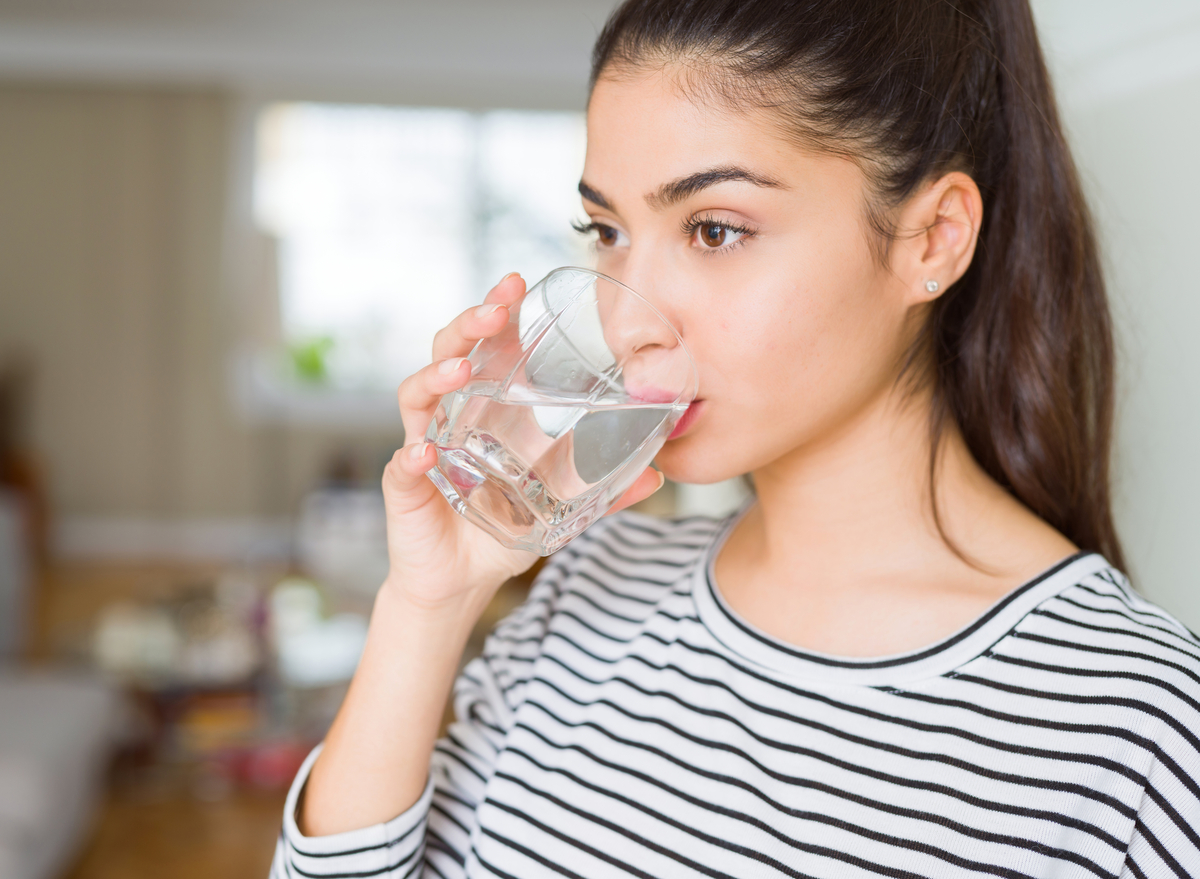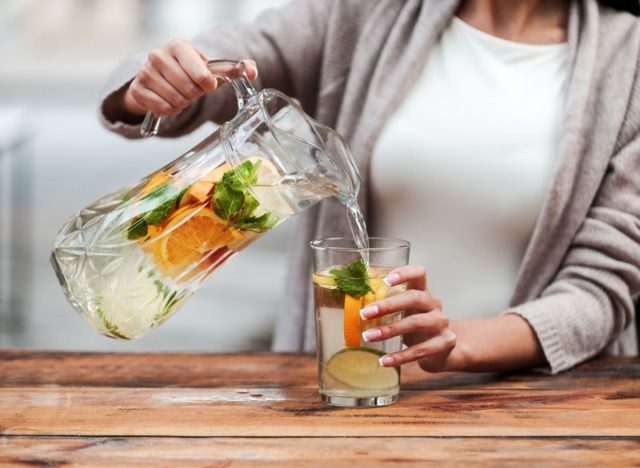The #1 Easiest Drinking Habit for Your Heart, New Study Says

Drinking your way to better heart health doesn't necessarily require any fancy ingredients you've never heard of before. Sometimes, it can be as simple as adding a couple more glasses of water to your routine every day—just enough to make sure that you're staying hydrated.
In fact, a new study finds that staying hydrated could help protect you from heart failure.
In the study, published in the European Heart Journal in late March, researchers from the National Institutes of Health's (NIH's) National Heart, Lung, and Blood Institute (NHLBI) looked at a group of more than 11,000 middle-aged adults, following up over 25 years. They looked at information about participants' serum sodium (the amount of sodium in their blood as it relates to the amount of water), comparing it to their risk of heart failure.

They found that hypohydration—the loss of water in the body without replenishing it—was linked with increased risk. Conversely, researchers noted that their findings suggest that keeping well-hydrated could decrease the danger of heart failure and slow the decline of cardiac function.
"A full explanation for the role of water in heart function and how exactly hypohydration causes heart disease would require more studies," Dr. Natasha Dmitrieva, research scientist at the NHLBI, tells Eat This, Not That! "But we can already speculate that such adverse effects on the heart are related to the way our body tries to conserve water when we do not drink enough."
She added that, when we're not hydrated enough, our bodies set off a process to preserve water that can start to have negative impacts on our heart after a while.
If you're one of those people who doesn't like drinking water, that's okay. Other beverages will also do the trick. Dmitrieva notes that it's really just a question of getting fluids into your body.
"The best way to keep well hydrated is to be actively aware of the amount of fluids [you] drink and make sure that [you] drink recommended amounts on a regular basis," she says. "Most people do not track the amount of fluids they consume and rely entirely on thirst sensation. However, thirst sensation deteriorates as we age, contributing to even lower fluid consumption in older people." For more on how your beverage choices could be affecting your health, be sure to check out these Drinking Habits to Avoid For Better Heart Health After 50, Say Dietitians.








